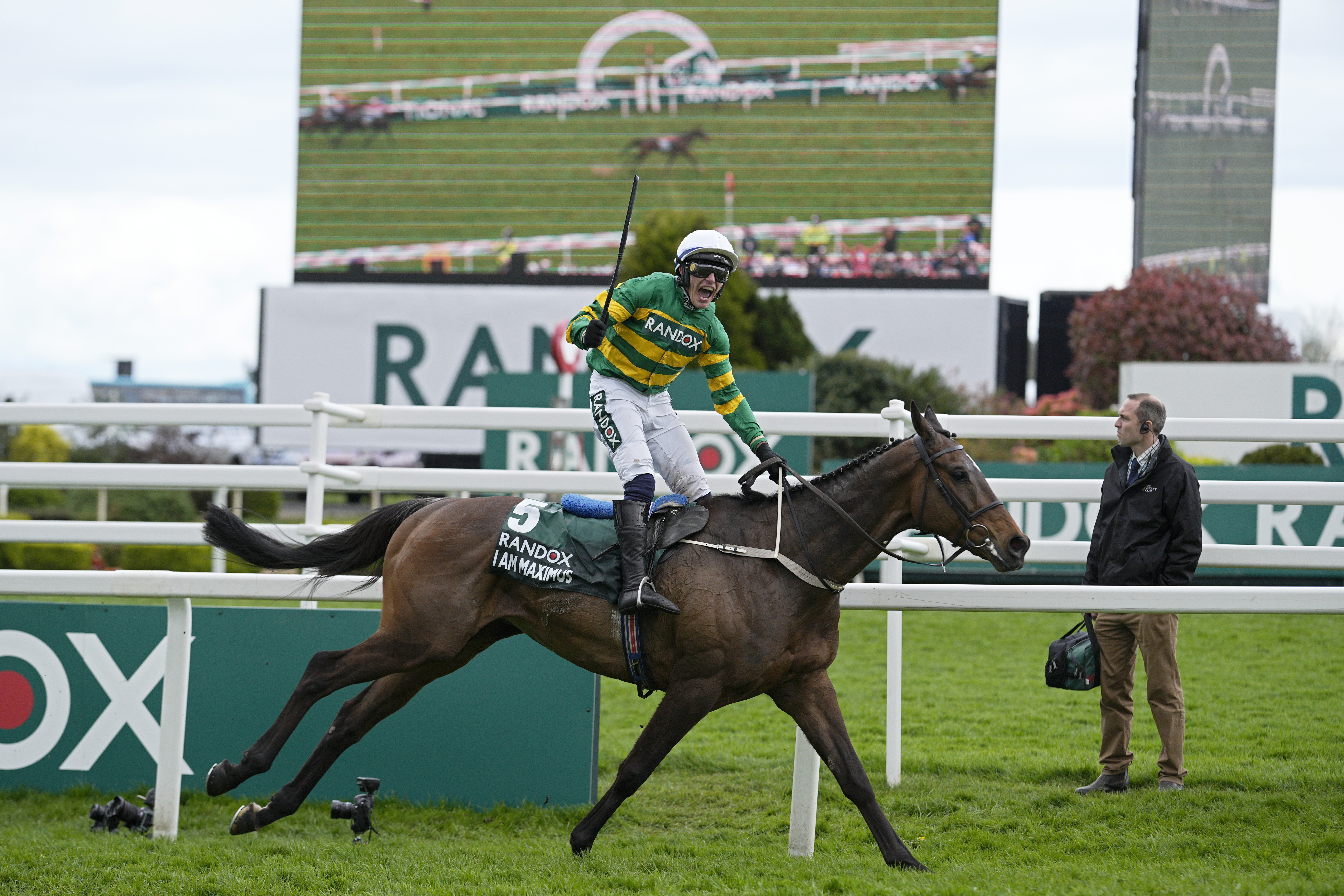Top-Class Performance
Paul Townend rode I Am Maximus to victory in the Grand National, securing a £500,000 prize. The horse, owned by JP McManus, impressed experts and received a rating of 167 from Timeform, surpassing the previous best this century, Tiger Roll.
Future Trends
Experts predict a trend towards classier horses winning the Grand National in the future, with I Am Maximus setting the bar high for upcoming races. The horse is already a favorite to win again next year.
Classier Horses Prevail
With a reduced field and smaller fences, experts believe that horses like I Am Maximus, who have a higher class and are more competitive, will dominate the Grand National in the modern era. The days of older staying handicappers may be coming to an end.
Gamble Responsibly
As always, it is important to gamble responsibly. Set limits on time and money spent, only gamble with what you can afford to lose, and seek help if needed. Organizations like Gamcare and Gamble Aware are available for support.
Frequently Asked Questions
What is meant by the term “photo finish” in horse racing
In a ‘photofinish’, two or more horses are so close to each other that it’s impossible to tell who won with the naked eyes. In such cases, race officials utilize a finish-line cam that takes images at high speeds in order to examine the exact moment when each horse’s face reaches line. The photo-finish image allows officials to accurately determine the official order.
What is the role a steward plays in horse racing
Stewards are responsible for ensuring that all horse racing is conducted in a fair and legal manner, according to the racing rules. They are responsible for overseeing the conduct of jockeys, trainers, and other racing personnel, monitoring the races for any rule infringements, and holding inquiries into any incidents or objections. In the event that rules are violated, the stewards may also be able to impose fines or suspending the race.
What are the most prestigious horse racing events in the UK?
The United Kingdom hosts a number of acclaimed horse races that draw audiences from around the world. The most prestigious of these include Royal Ascot and the Grand National in Aintree. These events not only showcase the finest equine talent but also offer rich history and tradition, and have become social occasions with distinctive dress codes and royal patronage.
What is the handicap system in UK horseracing and how does it work?
The handicap system in UK horse racing is designed to ensure that every horse has an equal chance at winning. In essence, horses are given different weights during the race depending on their past performance. The heavier the weight, the better for horses that have a good past performance. In the UK, the British Horseracing Authority (BHA) is responsible for handicapping. Their team of handicappers updates ratings regularly after races.
How can i learn to read race cards?
Reading a racecard is crucial for understanding the key information about a race and the horses running in it. A racecard contains information about the horse such as its name, age, weight and trainer. It may also include the jockey’s silk color. Understanding this information can help you make better betting decisions by allowing you to gauge the chances of each horse. As part of their customer services, many betting services and racecourses provide guides on reading racecards.
There are different types of races for horses in the UK.
There are many different types of horse racing in the UK. They fall primarily under the categories of Flat Racing and National Hunt (or Jump) racing. Flat racing takes place over level tracks from five furlongs to two miles. National Hunt racing emphasizes both the speed and jumping ability of the horse, with races like hurdles and steeplechases featuring a series of obstacles. There are many variations of these two broad categories. For example, handicaps, maidens and conditions races. Each with its own rules and criteria.
Statistics
- The prize money for the Epsom Derby stands at approximately £1.5 million, with the winner taking home a substantial portion of this sum.
- Around 14,000 thoroughbred foals are born each year in the UK with the goal of becoming top racehorses.
- The Grand National at Aintree boasts a prize fund of around £1 million, making it the most valuable jump race in Europe.
- The National Hunt racing season in the UK sees approximately 1,000 races with hurdles or fences each year.
- British horse racing generates over £350 million in annual tax revenues for the UK government.
- Horse racing contributes an estimated £3.7 billion to the UK economy directly and indirectly each year.
External Links
thejockeyclub.co.uk
britishhorseracingmuseum.org.uk
britishhorseracing.com
racingpost.com
thejockeyclub.co.uk
betfair.com
How To
How to choose the right horse racing festival in the UK
The best horse racing festival to attend in the UK is dependent on your personal preferences, whether you prefer the elegance and thrill of flat racing or jump racing. For pomp and pageantry, opt for the Royal Ascot with its royal connections and strict dress code. Cheltenham Festival combines high-stakes racing with a festive atmosphere. You can learn about the races and their history as well as the additional entertainment offered. To make your race-day experience as convenient and enjoyable as possible, consider the location, accessibility and accommodation options.

